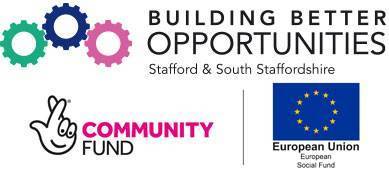What Is The Typical Job Interview Process? Employment
Landing a job interview is more difficult than you think. Especially in today’s modern world, most job hunting is carried out through online applications. Many job sites including Indeed and Total Jobs have many advantages. These include: being convenient; easy to use as well as access to the latest opportunities in your area. The aforementioned job boards also have some disadvantages, such as the job opening reaching a larger audience and the level of competition can be quite high.
The interview process can be a stressful and uncertain time for the majority of people. Everyone goes through a number of interviews throughout our lives. Interview stages can vary from industry to industry, or depending on the position you’ve applying for. However, the overall progression remains relatively the same. If you have attended job interviews before, you’ll be aware of how it works. Otherwise, this article will take you through each step of the typical job interview process so you know what to expect heading into your interview.
Stage One – First Interview
You’ve applied for a job you’re interested in and patiently waiting to hear back. The majority of hiring managers get back to you in a matter of days, or within one to two weeks. Interviews can take place at the workplace, on the phone or video call.
The interview is generally brief and based on your qualifications, employment history, and related experience. You’ll learn more about the business and may meet your potential manager. You could be asked a series of questions, show examples of your work or perform a skills assessment related to the job position. Prior to the interview, be prepared by researching the business and the job position, arrive on time, and dress appropriately.
Stage Two – Second Interview
If you’re lucky enough to be called back for a second interview, this is usually a longer and more detailed meeting. You’ll be asked more questions that managers would like to know about or give you feedback on your skills assessment. You may be introduced to other members of the workforce. If the job position has high competition, it’s possible to go through second or even third interviews.
Stage Three – Background Checks
This stage involves checking if the candidate has the right to work in the UK, any criminal records, employment and education history, credit checks, licence checks, and so on. It can vary depending on the type of job. For example, if the job is high profile or sensitive, clean credit checks are essential. This background check can be carried out during any stage of the interview process. Failure to provide necessary information or documents can lead to the withdrawal of a potential job offer.
Stage Four – Job Offer
Now that you have completed the interview stage, it’s time to wait to hear back about a potential job offer. The successful candidate will be contacted with an offer of employment. Usually, the terms of employment, including wage or salary and benefits, are shared with you. If you accept the job offer, you will be given a contract of employment which needs to be read carefully.
If you’ve recently been offered a job, congratulations to you! If you have been unsuccessful, we’re sorry to hear that. Our best advice is to keep a positive attitude and don’t give up. Many people go through a number of interviews before they are successful. The right job is out there waiting for you!
At Building Better Opportunities, we are here to help you every step of the way. We are an organisation based in Stafford and South Staffordshire. If you live in the Greater Staffordshire area and are looking for free employment support, training or workshops, contact us today. Our team will be happy to answer any questions.
